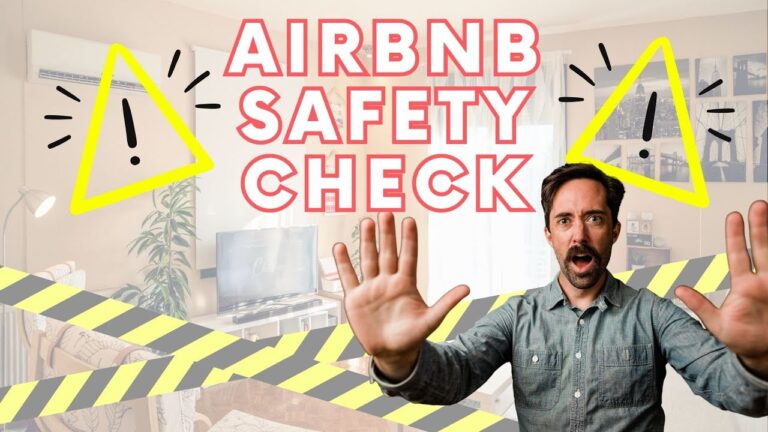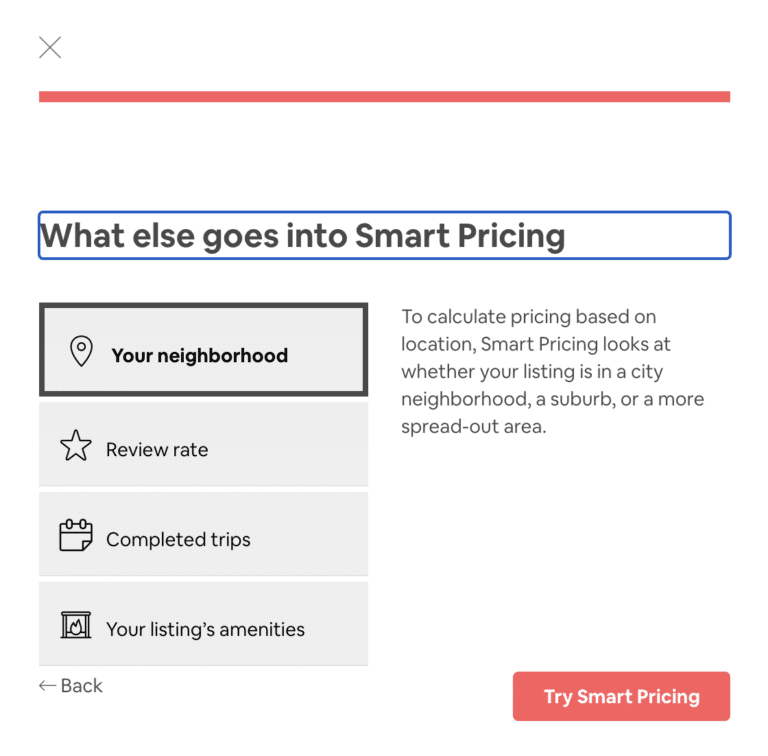How to Evict an Airbnb Guest Who Won’t Leave: Your Rights as a Host
How to Detect and Avoid Airbnb Squatters
1. Don’t Allow Stays for 30 Days or More
One of the best ways to avoid getting squatters on your property is to simply not allow stays for 30 days or more. This is because, in most stays, renters will automatically get ‘tenant rights’ if they stay on your property for 30 days or more.
These rights include things like the right to a written lease, the right to have repairs made, and the right to not be arbitrarily evicted. While these rights are typically good for renters, they can spell disaster for you as a property owner if someone decides to squat on your property.
It is ideal to have a lease agreement in place for any stays that are longer than 30 days. This will help to protect you in the event that someone does decide to squat on your property.
If you do allow stays for 30 days or more, it is important to be aware of the warning signs of squatters so that you can take action quickly if someone does try to squat on your property.
2. Know Local Legal Requirements
Every state has different laws when it comes to rentals and eviction. As a property owner, it is your responsibility to know the laws in your state so that you can avoid any legal trouble.
For example, in some states, Airbnb guests may have tenant rights after a specific number of days, like 28 or 30, and certain protocals may need to be followed to evict them from your Airbnb listing. You may also need to give short term rental guests a certain amount of notice before you can legally evict them. In other states, there may be specific requirements that must be met in order for an eviction to be legal.
If you are unsure of the laws in your state, it is best to consult with an attorney who specializes in landlord-tenant law. They will be able to advise you on the best course of action to take to avoid any legal trouble.
Airbnb has city-specific guidance that you can find here
Taking legal action against squatters can be a time-consuming and expensive process. It is best to avoid getting into this situation if at all possible.
3. Don’t Deal Outside Airbnb
Another way to avoid getting squatters on your property is to simply not deal outside of Airbnb.
There are a lot of scammers out there who will try to get you to rent your property for a month or more without going through Airbnb. They may promise to pay you in cash or say that they will take care of the property while you are away.
These offers may seem tempting, but it is best to simply not deal with them. The best way to avoid getting squatters on your property is to only rent through Airbnb and to never deal outside of the platform.
Airbnb will not support you if someone does squat on your property. This is because they are not liable for any damages that occur to your property.
Dealing outside of Airbnb also voids your host guarantee, which means that you will not be covered by their insurance if something goes wrong. To add to your problems if you are dealing outside of the Airbnb platform you are likely in breach of Airbnbs policies and could have your hosting account suspended as well. In attempting to save a few dollars you could find yourself with a suspended Airbnb account and guests who you have to take legal action to remove from your home.
4. Enforce Strict House Rules
Just by having house rules and policies on your Airbnb listing potential problem guests will glean whether you’re the type of host that is unprepared or prepared to handle problems that come up. When I first started hosting I didn’t have clear guidelines on my Airbnb listings and I had guests regularly trying to break the few rules I had. Once your house rules are really ironed out potential guests can tell whether they are going to be able to get away with overstaying their reservation or not.
5. Sign Separate Contracts for Each Stay
If you do have guests staying at your property for 30 days or more, it is important to sign a separate contract for each stay.
This contract should state the length of the stay, the rental amount, and any other house rules that apply. You could also consider getting a copy of their government ID.
Having a separate contract for each stay will help to protect you if someone does try to squat on your property.
It is also important to get a security deposit from each guest. This will help to cover any damages that they may cause to your property during their stay, and helps them understand that they have money to lose if they don’t follow the parameters you create in the contract they sign.
Getting a security deposit is a good way to protect yourself from financial loss if someone does decide to squat on your property and gives you a buffer in the event you lose future bookings while resolving your issues with your problem guests.
6. Screen Your Guests
Screening your guests is another good way to help avoid getting squatters on your property.
When you are screening your guests, be sure to check their reviews and references. You can also ask them questions about their trip to make sure that they are who they say they are.
Asking questions like where they are coming from and what their plans are while they are in town can help you to screen out potential squatters.
You should also require that all guests provide a valid ID when they check-in. This will help to ensure that the person who is staying at your property is who they say they are.
Asking for a valid ID is an important step in screening your guests and helping to avoid getting squatters on your property.
Read their previous reviews, and take a quick look on social media for them.
What to Do if Your Airbnb Guest Won’t Leave
There are multiple actions that you can take if you find yourself in this situation.
1. Contact Airbnb
If you have an active reservation, you can reach out to Airbnb for help. They may be able to contact the guest on your behalf and help resolve the situation. You can also file a complaint with them if necessary.
Airbnb takes these types of situations very seriously and they should be able to help you out.
If you don’t have an active reservation, then you will need to take matters into your own hands.
Here are a few things that you can do:
– Talk to the guest and try to agree on when they will leave.
– If the guest is being disruptive or causing damage, you can call the police.
– You can also change the locks on your property if necessary.
These are just a few of the things that you can do if you find yourself in this situation. It’s important to take action quickly and not just wait around for the guest to leave on their own.
2. Change the locks
The first thing that you should do if you have a guest who won’t leave is to change the locks on your property.
This will prevent the guest from being able to enter the property and will also send a clear message that they are no longer welcome.
You should also block their access to your Airbnb account so that they cannot book another stay.
If you have a smart lock, you can simply change the code so that the guest does not have access to it.
If you do not have a smart lock, you will need to hire a locksmith to change the locks for you.
However, please note changing locks is not always legal. You should check with your local laws before taking this step.
You should also contact Airbnb and let them know what is happening. They may be able to help you resolve the situation.
3. Contact the police
If changing the locks does not work, you can also contact the police.
The police will be able to help you remove the guest from your property and they can also press charges if necessary.
However, it is important to note that the police may not be willing to get involved in this type of situation.
If the police are not willing to help you, you can also contact a local eviction company.
An eviction company will be able to help you remove the guest from your property and they will also handle all of the legal paperwork for you.
This is usually a last resort option, but it is something that you can consider if you are unable to resolve the situation on your own.
These are just a few of the things that you can do if you find yourself in this situation.
It is important to remember that you should never try to remove a guest yourself. This could result in a physical confrontation and it could also lead to charges being filed against you.
Airbnb Renters Rights
Renters have specific rights depending on the laws of their state or country. These rights may include the right to a security deposit, the right not to be discriminated against, and the right to a habitable space free from health and safety hazards, among others.
As an Airbnb host, it’s important that you understand your renters’ rights in order to avoid any legal trouble down the road.
Evicting an Airbnb guest who won’t leave can be a tricky situation. If you find yourself in this predicament, here are a few things to keep in mind:
First and foremost, check your local laws to see what the procedures are for evicting a tenant. Generally speaking, you’ll need to give your guest a written notice that they must vacate the premises within a certain timeframe (usually 24-48 hours).
If your guest still refuses to leave, you can then call the police to have them removed from your property.
Keep in mind that evicting a guest is a last resort. If at all possible, try to resolve the issue with your guest directly before taking any legal action.
Airbnb Eviction Procedures
If you find yourself in the situation where you have an Airbnb guest who won’t leave, don’t worry. You have rights as a host and there are procedures in place to deal with this type of situation.
Step 1: Give Notice
The first step is to give your guest notice that you are terminating their stay. This can be done verbally or in writing, but it is always best to put it in writing so that there is no confusion.
Step 2: Contact Airbnb
If the guest does not leave after you have given them notice, the next step is to contact Airbnb. You can do this by logging into your account and going to the Resolution Center. From there, you will be able to select “I need to cancel a reservation” and then “My guest won’t leave.”
Airbnb will then reach out to the guest and try to mediate the situation. If the guest still does not leave, Airbnb will cancel their reservation and issue you a refund. You will then have to go to housing court to officially evict the guest.
Step 3: Talk to an Attorney
It is always a good idea to speak with an attorney before taking any legal action. They will be able to advise you on the best course of action and represent you in court if necessary.
Eviction should only be dont via the housing court system. State laws vary, but most require a landlord to give a tenant notice before starting the eviction process. The amount of time required for notice typically ranges from three to 30 days, depending on the state.
When an Airbnb guest refuses to leave, the host may have to follow a state-specific eviction process. This may involve sending written notice, waiting for the tenant to fail to move out, and filing a court eviction. If the court rules in favor of the eviction, the tenant will be given a deadline to leave. If they fail to do so, law enforcement can help remove them.
Airbnb Eviction: Consequences (Bans, Reviews, etc)
As a host, it’s important to be aware of the potential consequences of evicting an Airbnb guest. These can include bans from Airbnb, negative reviews, and even legal action. While it’s sometimes necessary to take these measures, they should only be used as a last resort after all other efforts to resolve the situation have failed.
Final Thoughts and Key Takeaways
Evicting an Airbnb guest can be a tricky situation, but there are procedures in place to deal with it.
First, you’ll need to give your guest notice that you are terminating their stay. If they still don’t leave, you can then contact Airbnb and file for an eviction.
However, before taking any legal action, it’s always best to try and resolve the issue directly with your guest. And keep in mind that there can be consequences for evicting a guest, such as bans from Airbnb or negative reviews.
So while it’s sometimes necessary to take these measures, they should only be used as a last resort after all other efforts have failed.







